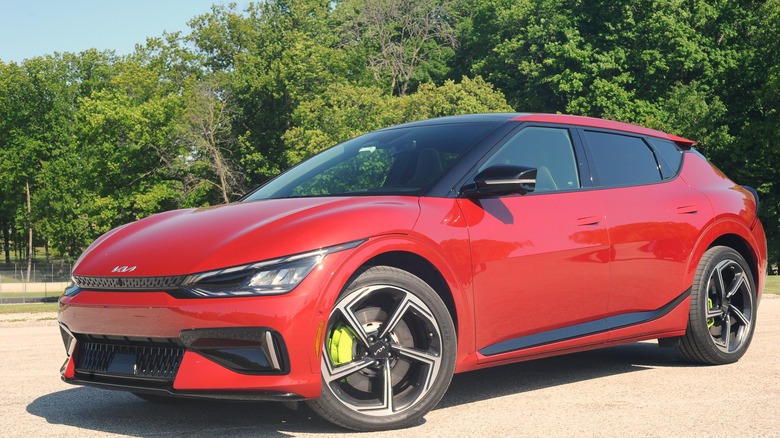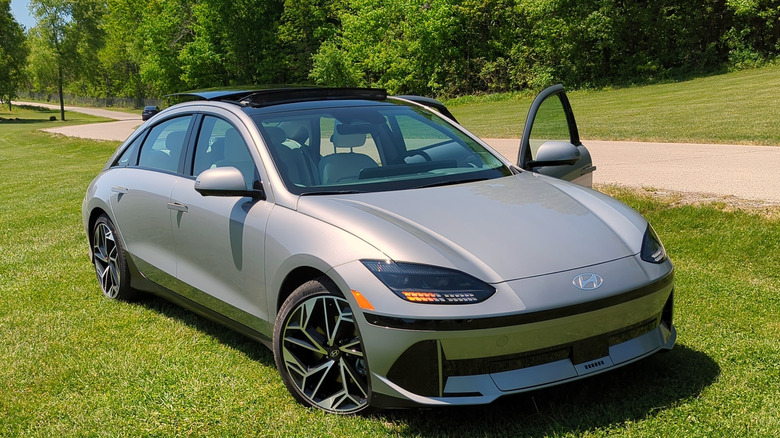The Reason Why EV Lithium Batteries Don't Last Forever
With manufacturers like General Motors making commitments to stop producing internal combustion engine vehicles by 2035, the future of the automotive industry certainly looks electric. But moving to EVs does bring a lot of questions, especially in terms of longevity. Replacing a battery in a watch might be fairly cheap, but when it comes to replacing the battery pack in a Kia EV6, things get much more pricey. And unfortunately for EV owners and considerers, the lithium-ion battery packs found in most modern electric cars will not last forever. These batteries can only last so long before they stop performing and operating as the manufacturer intended.
The news is not all bad for electric cars, though. With technological advancements constantly taking place, an EV's battery should last over a decade before needing a replacement. Still, with the premiums associated with purchasing an electric vehicle, why don't EV lithium batteries last forever?
How long do electric car batteries last?
Most modern electric vehicles should have battery packs that last at least 10 years. But if you are searching for a better indicator of what you can expect, look no further than standard warranty coverage. All new EVs that are marketed today come with a manufacturer warranty of at least eight years and 100,000 miles. Not only do these warranties cover complete battery failure, but they also offer peace of mind should serious degradation occur.
When it comes to warranty coverage, you can be sure that a car manufacturer has done the research so that it does not have to pay out mountains of cash on warranty claims. In the future, lithium-ion battery packs should be more affordable, but as it stands, replacing a full pack can climb well into the $20,000 range.
Now, some manufacturers do offer better standard warranties than others when it comes to EVs. Hyundai vehicles come with a 10-year/100,000-mile EV warranty that covers batteries, motors, and powertrain components. Overall, it looks like most manufacturers give a 70% battery capacity retention guarantee over the course of the warranty.
It's important to note, a lithium-ion battery pack loses some capacity over time, which can negatively impact your EV's driving range.
Why don't lithium-ion batteries last forever?
There are multiple factors why lithium battery packs in an EV do not last forever. Mechanical degradation can mean that the ability to charge and discharge is negatively impacted. And as Nissan found out through the Leaf EV, electrolyte oxidation can happen in extreme conditions. This happens when a battery is operated at a full or near full state in high heat.
In a perfect world, the principles of a lithium-ion battery might make it seem like one can discharge and recharge forever. But, that is simply not the case. Things like charging rates, harsh weather conditions, and letting your EV fully discharge can impact its performance and potentially the life of the battery pack.
Fortunately, at least for EVs being sold today, the cost of replacing a battery should be cheaper once the time comes. You might be worried about the high price of getting a new battery pack for your recently purchased electric car. But in 10 years' time, that service will likely be more affordable.
For folks that were early adopters of electric cars, it's entirely possible that the time for a battery pack replacement is on the horizon.


